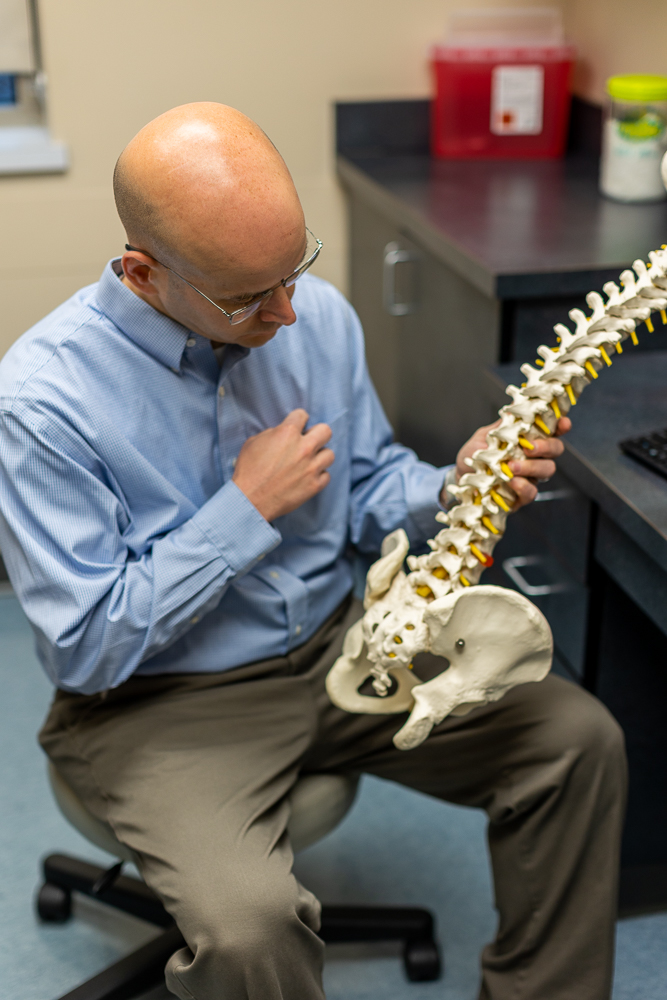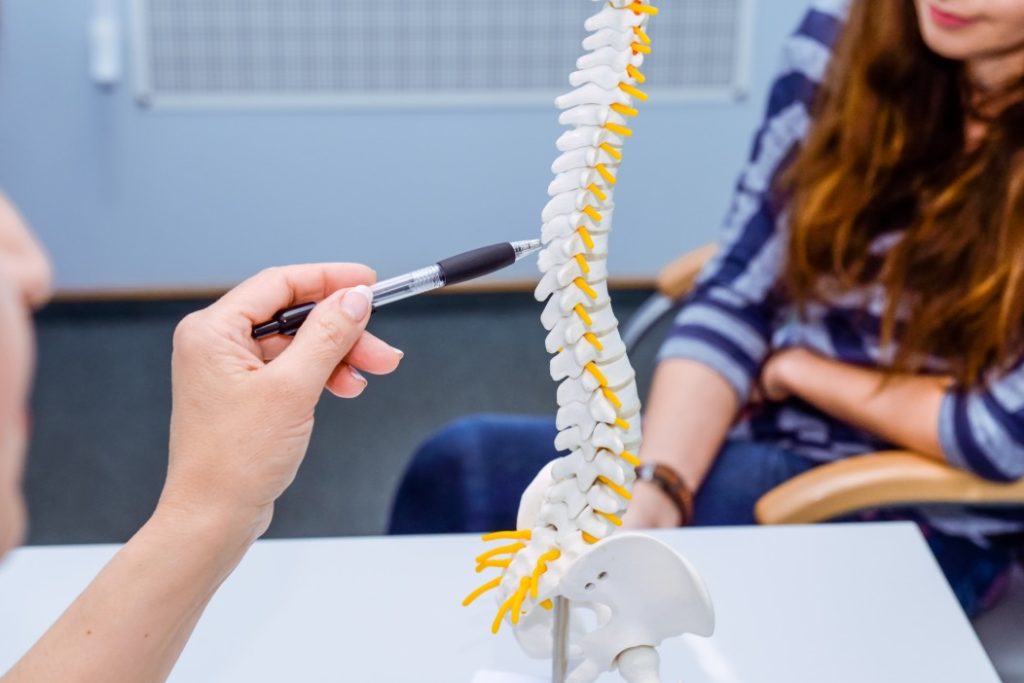
Your bone health is critically important to your daily life and everyday functions. Not just when it comes to your activity level or your mobility, but your overall body health as well. Many of our treatments at Kansas City Orthopedic Alliance focus on treating acute injuries or common degeneration issues, such as osteoarthritis.
However, bone health isn’t limited to acute injuries or degeneration. These are common ailments, but less common are bone health issues related to cancer or tumors in the bones, musculoskeletal system, and soft tissues. These issues are much more rare, and require extensive treatment from a skilled orthopedic oncologist in Kansas City.
In addition to our treatment capabilities for joint pain, joint deterioration, and injuries, Kansas City Orthopedic Alliance is adept at treating the pain and symptoms associated with bone tumors. Read on to learn more about orthopedic oncology and how KCOA provides effective treatments for those dealing with bone tumors.
What is Orthopedic Oncology?
Orthopedic oncology centers around bone health, specifically the treatment of bone, musculoskeletal, and soft tissue tumors. These tumors occur when your cells divide in an abnormal way, which leads to a mass or a lump of tissue that can be either malignant or benign.
Though benign tumors usually are not fatal, they may still require extensive treatment or surgery. On the other hand, malignant tumors, if left untreated, can potentially cause cancer to spread throughout the body. It’s currently unknown how bone tumors occur, although your genetics, previous injuries or exposure to high doses of radiation may play a factor.
In the event a bone, musculoskeletal, or soft tissue tumor does develop, an orthopedic oncologist in Kansas City can provide a number of different treatment options.
Types of Bone Tumors & Cancers
The first step for treatment is to first get an accurate diagnosis of the issue. Many bone tumors are benign and treatable if they’re caught early, as benign tumors do not spread throughout the rest of the body. Some types of benign bone tumors that can develop include:
- Osteoma
- Chondroma
- Enchondroma
- Lymphangioma
- Osteochondroma
- Eosinophilic granuloma of bone
- Non-ossifying fibroma
Malignant bone tumors are far less common than benign tumors, but they are much more dangerous. Because malignant tumors are cancerous, it’s important for your orthopedic oncologist in Kansas City to catch the issue early. This can help prevent the cancer from spreading throughout the body through the lymphatic system or through blood. If that happens, the cancer is potentially fatal for the patient.
The most common form of bone cancer is osteosarcoma, which can develop in people of all ages. Generally, those with osteosarcoma develop tumors in the upper arms (toward the shoulder), or in the legs (near the knee). In rare cases, however, osteosarcoma tumors can develop outside of the bones, which are known as extraskeletal osteosarcomas.
Other types of malignant bone cancers can include:
- Chondrosarcoma
- Chordoma
- Ewing’s sarcoma
- Neuroblastoma
- Osteosarcoma
How Can I Tell if I Need to See an Orthopedic Oncologist in Kansas City?
There are several signs and symptoms you can look out to determine if you need treatment from an orthopedic oncologist in Kansas City. One of the most common signs that you may need treatment involves the discovery of a growing mass or lesion on an extremity.
In some cases, this may be a patient’s only symptom and they may not feel any additional pain. However, another issue that patients may experience as a result of a tumor are actually bone fractures. Though it is rare, tumors can weaken the bone and cause them to be more prone to breaking. Other potential symptoms of a bone, soft tissue, or musculoskeletal tumor include:
- Pain in the area of the tumor
- Swelling
- Tenderness
- Fatigue
- Fever
- Walking with a limp
- And unintended weight loss
Unfortunately, because there aren’t a large number of telltale symptoms, patients can ignore them, thinking the issue is something else. That’s why, if you’re experiencing one or multiple symptoms, it’s important to visit a medical provider as soon as possible.
Once you visit your medical provider for your first appointment, they will perform a series of tests to determine a proper diagnosis after performing a physical examination and reviewing your medical history. The most definitive way of providing a diagnosis involves the use of a biopsy. During a biopsy, your provider takes a sample of the affected area of the bone and sends it to a laboratory for further sampling.
Your provider does this either through a core needle biopsy—which uses a thin needle to remove a sample of tissue—or through an open biopsy, where a surgeon cuts the affected area to remove the tissue sample. Other methods your orthopedic oncologist in Kansas City can use to diagnose your issue include:
- X-Rays
- CT Scan
- MRI Scan
- Bone Scan
- Or Bone Marrow Biopsy
Orthopedic Oncology Treatments
Following your diagnosis, your provider can begin looking at proper treatment methods to deal with the issue. There are numerous different treatments your orthopedic oncologist in Kansas City can perform to alleviate symptoms and heal patients. The types of treatment used also depend on the type of tumor, its location, and its size.
In less advanced cases, your provider may simply monitor the area using radiographs to see if the issue becomes more severe. They may also provide you with specific medications designed to treat the tumor. In other cases, your provider may surgically remove the tumor, which has a high rate of success among patients.
In the event of a cancerous bone tumor or lesion, it’s possible your provider may use more aggressive treatment methods. There are different stages of cancer, ranging from Stage 1 all the way to Stage 4. Lower stages indicate a smaller tumor, while Stage 4 indicates that the cancer has spread throughout the body.
In addition to surgical removal of the whole tumor, your provider may also use cryotherapy, which uses low temperatures to freeze the cancerous cells. Chemotherapy is also an option, where your provider utilizes anti-cancer drugs delivered through the veins to eliminate the cancerous cells.
Finally, there’s radiation treatment, which uses X-Rays and other powerful energy beams to shrink the tumor and kill the cancerous cells. Radiation is often used on patients who aren’t able to have their tumor removed surgically.
There are many obvious benefits to utilizing these different treatments from an orthopedic oncologist in Kansas City, as they may potentially save lives if the issue is cancerous. For more benign issues, treatment can help provide pain relief, improve aesthetics, and allow patients to retain use of the joint.
In terms of your recovery process, this will vary based on a variety of factors. These can include the age of the patient, their activity level, their health prior to treatment, the severity of the tumor, and more. Sometimes, the improvement is immediate with less severe tumors. Other times, it can take a short recovery period with rehabilitation.
What Makes KCOA Orthopedic Oncologists Uniquely Qualified to Provide Treatment?
There are many reasons why orthopedic oncology treatments at Kansas City Orthopedic Alliance are beneficial. For starters, our team has the ability to get patients into treatment quickly if they notice an issue or concern. In some cases, our providers determined a diagnosis and performed limb salvage surgery within one week of discovering the issue.
What’s more, our providers are available and willing to work on an individual basis with our patients to ensure a world-class treatment experience. If your primary care provider has noticed an issue, we can work quickly to get you into one of our six locations for treatment.
KCOA has a dedicated team of nurses and providers that strive to provide exceptional care for all of your bone health issues. Additionally, our partners at St. Luke’s Medical Center and Children’s Mercy Hospital in Kansas City are also capable of assisting our team in treatment.
Tumors and lesions are potentially serious, even life-threatening issues. If you believe you’re suffering from the symptoms of a tumor or lesion, our team will work tirelessly to provide an individualized treatment plan for your needs. Once the issue is treated, we’ll continue to provide care through a detailed recovery plan and by answering any questions you may have about continued health and education.
Have Questions About Orthopedic Oncology? Contact Kansas City Orthopedic Alliance Today!
At Kansas City Orthopedic Alliance, we’re dedicated to creating a superior patient experience for all. If you’re in need of treatment from an experienced orthopedic oncologist in Kansas City, our team will work with you to ensure the best possible outcomes.
Scheduling an appointment with one of our providers allows us to find the best treatment option for your needs. Using the highest quality technology, we can pinpoint the exact underlying issue causing your symptoms.
For a thorough evaluation, call us at (913) 319-7600 or schedule an appointment today.


